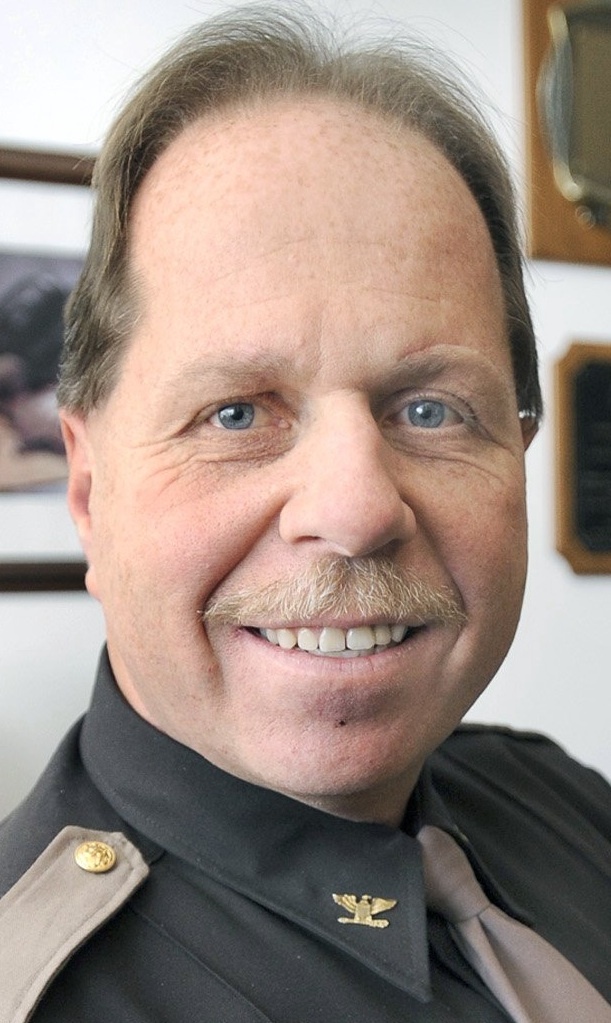Although Maine has legalized the medicinal use of marijuana, it is still viewed as contraband when it crosses the secure perimeter of the state’s jails and prisons, and it remains illegal in the eyes of the federal government.
Dealing with medical marijuana when a prescribed patient is arrested for another offense poses a sticky legal issue for Maine law enforcement. Several sheriffs and jail administrators say they want no part of the problem and have left it in the hands of arresting officers.
“I’ve tried to insulate us. I’m not going to be the only one collecting medical marijuana,” said Cumberland County Sheriff Kevin Joyce, who oversees the state’s busiest jail.
Storing the marijuana in jail is a problem because jails lack secure evidence lockers. But jail officials are more concerned with how they would return the prescribed marijuana to a released inmate without technically running afoul of federal laws that prohibit dispensing marijuana even if the state allows it.
Joyce recently informed police chiefs in Cumberland County that the jail would not accept medical marijuana with inmates’ property, which can include other medication that is transferred to the infirmary. “We’re going to give it back to the officer and they have to destroy it.”
Or not. Police agencies haven’t yet decided. Acting Portland Police Chief Michael Sauschuck said his department’s lawyer is studying the issue.
“It’s certainly an interesting problem that puts us in the middle of state law and federal law, so we’re currently looking at all our legal options before we make a final policy decision,” Sauschuck said.
Col. Mark Westrum, administrator for the Two Bridges Regional Jail serving Lincoln and Sagadahoc counties and chairman of the state Board of Corrections, was the first jail administrator to encounter the problem about six weeks ago.
An inmate was brought in for violating probation and among his possessions was a jar of marijuana. The marijuana was taken to the jail’s infirmary, where it could be stored securely. In a few days, the pungent aroma quickly spread through that area of the jail.
Westrum said he was faced with a dilemma: Violate federal law by returning the marijuana or violate state law by destroying it.
He opted for the latter. Neither the inmate nor anyone else has formally objected.
Even though the marijuana is used medicinally, state jails are not obliged to provide it and it is still illegal inside the jail because of exemptions in state law, according to a letter from Assistant Attorney General Diane Sleek.
Westrum concedes it may be unlikely that the U.S. attorney would prosecute law enforcement for giving medical marijuana back to someone who is entitled under state law to possess it — in October, the Obama administration announced it would not prosecute medical marijuana users and caregivers, but that might not hold true in a different political climate.
“Administrations change. Rules change. I would like to think we would not be prosecuted for giving somebody’s medical marijuana back to them, but who knows?” Westrum said. “I’d rather take my chances and see what the state of Maine is going to do.”
In cases where a person is arrested at home, the marijuana can be left there. Police officials have suggested returning the marijuana to licensed dispensaries, though that would not work if a person’s supplier is a registered caregiver.
Roy McKinney, director of the Maine Drug Enforcement Agency, said his agents have come across suspects who have permission to possess medical marijuana. In those cases, he said agents have seized the illegal drugs — including as much as 10 pounds of marijuana — while leaving behind two and a half ounces, the legal maximum for a registered medicinal user.
According to a state report, as of March 16, there were 1,100 patients who had been issued registry identification cards — or had them pending — which allow them to possess medical marijuana.
Like most sheriffs in the state, Joyce not only oversees a jail, he has deputies who enforce the law and must abide by the new policy.
“What I’ve advised patrol deputies is if someone who has medical marijuana can secure it at their residence, then do that. It makes it much simpler,” he said. “Otherwise, we are going to have to take it for safekeeping, then try to figure out how we deal with giving it back or not.”
Staff Writer David Hench can be contacted at 791-6327 or at:
dhench@pressherald.com
Copy the Story Link
Send questions/comments to the editors.



Success. Please wait for the page to reload. If the page does not reload within 5 seconds, please refresh the page.
Enter your email and password to access comments.
Hi, to comment on stories you must . This profile is in addition to your subscription and website login.
Already have a commenting profile? .
Invalid username/password.
Please check your email to confirm and complete your registration.
Only subscribers are eligible to post comments. Please subscribe or login first for digital access. Here’s why.
Use the form below to reset your password. When you've submitted your account email, we will send an email with a reset code.